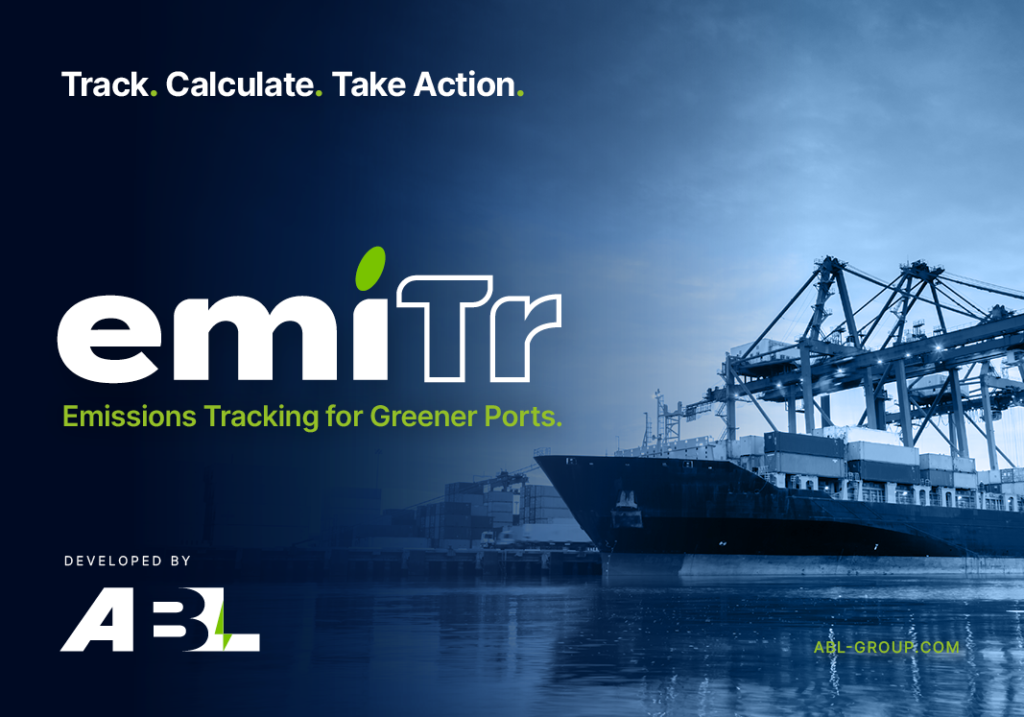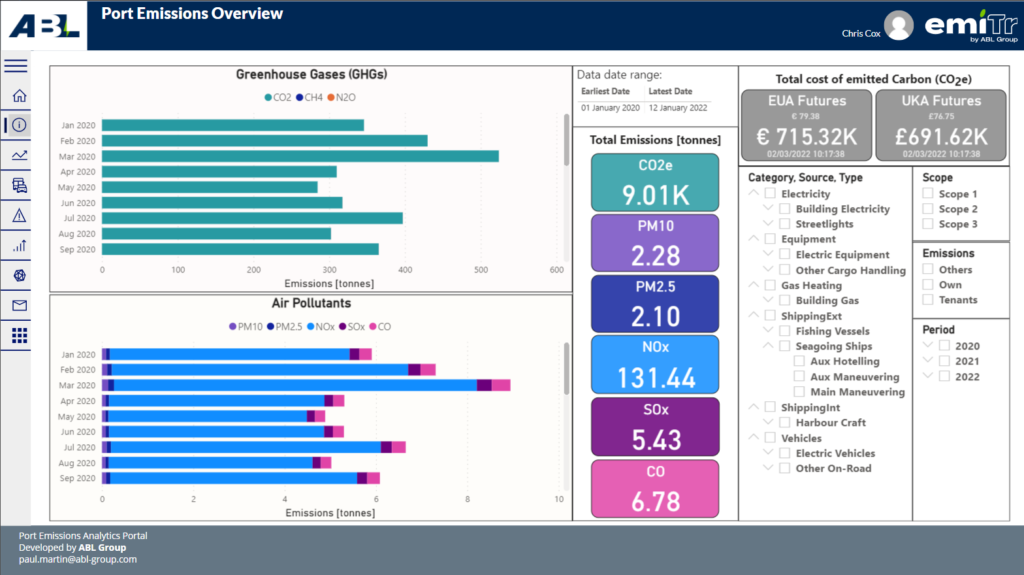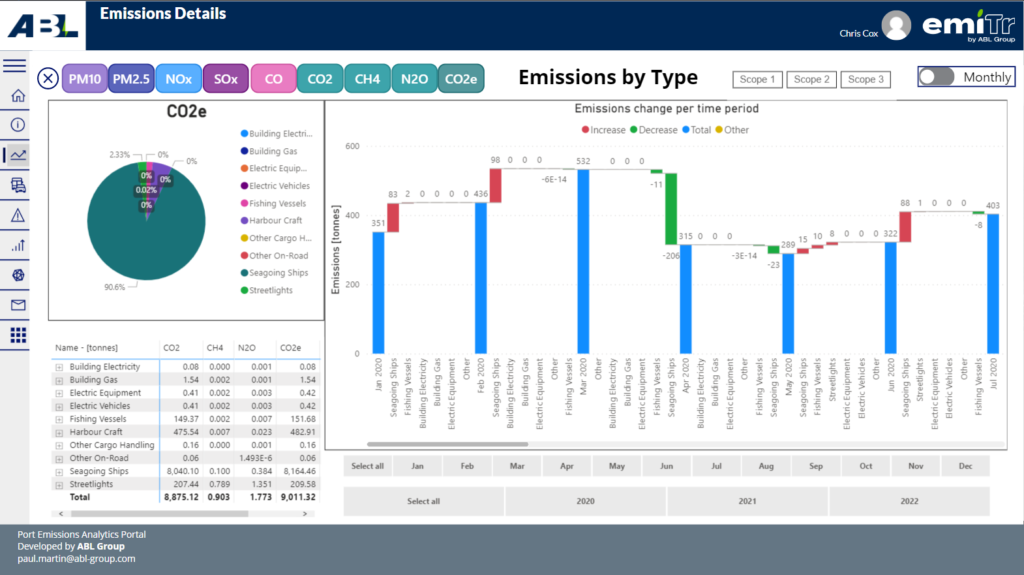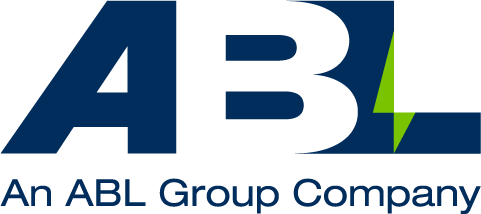Clean Shipping
The International Maritime Organisation (IMO) has made a commitment to reach net-zero greenhouse gas emissions (GHG) by or around 2050. With over 90% of worldwide goods transported by marine shipping, combined with increasing congestion in oceans and seas due to increased construction, operations and maintenance activities involving offshore energy assets, there is increasing scrutiny on the contribution of shipping and maritime to energy transition initiatives. However, looking at the wide range of vessel types and purposes, the solution is not a simple one.
ABL Group along with group company Longitude Engineering, have developed specialised in-house capabilities at pace with changing requirements in the market, to provide comprehensive advice and technical support to clients in their transition to more sustainable shipping solutions. Our services cover support from early advisory and feasibility, through to design and build, and subsequent marine and risk assurance.
Clean shipping systems design and engineering experts
Through expertise in electrical engineering, marine-based green technologies including hybrid-propulsion, fuel-cell and battery technology, combined with Longitude’s long-term vessel design and engineering expertise, and group company Innosea’s specialist capabilities in feasibility and analysis of marine renewables, ABL Group are highly experienced in supporting with the detailed concept design, engineering, analysis and integration of clean shipping systems.
Our expertise covers ballast water systems engineering, exhaust gas emissions management, scrubber expertise, hybrid propulsion, fuel-cell and battery technology.
With in-depth understanding of different vessel types, purpose and use in the market, we are able to provide detailed analysis and evaluation to determine the correct fit-for-purpose and commercially viable solution for our client. We use our wider cross-sector knowledge to consider the full supply chain and contributing assets such as bunkering/fuelling options, port infrastructure and local recourses, to determine the feasibility of a clean shipping solution, and deliver a bankable and truly sustainable solution.
In determining the appropriate vessel type and plant, our team will analyse the duty cycle of a craft, and identify specific goals and functionality – such as low emissions whilst alongside, or periods of zero emissions while underway.
This information capture enables a fully-defined specification to be prepared, before final selection of the correct elements of a hybrid propulsion system. We then follow this up through design, build supervision and commissioning.
Benefiting from our entrenched legacy in marine assurance and risk services, we are able to draw up detailed guidelines and procedural documents advising on risk mitigation of vessels with clean shipping technologies.
Our expertise covers ballast water systems engineering, exhaust gas emissions management, scrubber expertise, hybrid propulsion, fuel-cell and battery technology.
Ballast Water Systems Engineering
Longitude has extensive experience in integrating complex systems into existing vessels and platforms, which enable them to deliver a full system package including:
- Selection of an appropriate treatment system
- Identification of required treatment rates
- Analyse existing ballasting equipment and advise on upgrades where necessary
- 3D scanning of available spaces to suit the treatment plant
- Specification of the integration points with the existing Ballasting system
- Perform required calculations for the vessel Class authority
- Design equipment seats and support structures in accordance with Class requirements
- Produce detailed piping isometrics
- Identify removal/installation routes and work in way
- Produce comprehensive drawings and integration guidance to allow for accurate installation costing and to minimise refit time through prior purchase and fabrication of system components
- Produce an updated Ballast Water Management Plan for the vessel
- Specify and design the integration of the systems into the vessel’s existing alarm and platform monitoring system
Longitude Engineering has deployed its expertise for a range of commercial operators on vessels as diverse as vehicle ferries and cable laying barges.
Scrubber Systems
ABL Group’s engineers have experience with all manufactures of scrubber systems and technologies and are able to provide advice to clients as to what type of system is most suitable for a specific ship and how this may need to be integrated into the vessel and its systems.
Through group company Longitude, we are also able to support clients by engaging with manufacturers during the procurement process and in providing detailed design engineering for the installation of scrubber systems.
Marine emissions tracking
ABL Group’s global teams include a number of engineers and marine consultants, who specialise in marine emissions, as well as consulting on compliance and initiatives regarding numerous industry frameworks for maritime decarbonisation, as they come into play.
Our consultants bring an in-depth understanding of industry frameworks such as: The Poseidon Principles, The Sea Cargo Charter and Port Emissions Toolkit, combined with long-term expertise across different segments of the maritime industry. As such we are adept at providing fit-for-purpose advice on timings, solutions, implementation and integration of maritime decarbonisation principles into a company’s decision making, whether that be for a ship owner, charterer, port, shipyard or marine insurer.
Our objective is to provide tailored consultancy and engineering solutions, which will aid clients in their understanding of their carbon and pollutant footprint, and help them in setting up a viable roadmap for future carbon-reduction and compliance with ESG commitments and industry frameworks.
emiTr – Emissions Tracking for Greener Ports

Ports and harbours are substantial contributors to maritime’s carbon and pollutant footprint, via both its direct and indirect emissions. In order for ports and harbours to play a meaningful role in the wider industry’s decarbonisation, as well as in supporting global climate goals, we understand that the first step to taking any action is to understand what your emissions are, where they come from and what could they cost you down the line.
emiTr is a digital, easy-to-use inventory of the complex web of a port’s emissions, mapping our both direct and indirect sources, developed by ABL Group in collaboration with Shoreham Port – a UK Trust Port.
emiTr gives ports and harbours the power to TRACK emissions, CALCULATE the cost and risk of their emissions, and facilitates the necessary data and information to put down a roadmap to TAKE ACTION against your emissions footprint.
Based upon the “Port Emissions Toolkit“, emiTr enables ports to visualise and understand their emissions footprint via a series of configurable graphics, calculating the potential carbon cost in monetary terms, and to identify the biggest emitters, thereby informing action in line with national and international reduction targets.
“We are delighted to be working with the team at ABL Group who are helping us make the identification and tracking of our emissions simple and straightforward to do. This is important data for us to understand the impact we make, and we will use this data to inform decisions in the future as we aim to improve our energy efficiency and reduce pollution across the Port’s footprint”
Samantha Woolven, Interim People, Communications & Sustainability Director, Shoreham Port
Download our flyer for more information on emiTr, and for contact details to request a demo:


“The first step in any capital expenditure decision-making regarding infrastructure spend relating to emissions reduction, is to have a clear picture as to what existing emissions are and where are they coming from. Port emissions are a complex web, which are produced both directly and indirectly within a port’s jurisdiction and it is essential to map these out”
Paul Martin, ABL Maritime Director
Though designed with ports and harbours in mind, emiTr is highly configurable and flexible to support any industry and company across the marine sector in tracking and calculating their emission profile. It could for instance, be configurable to support offshore oil & gas operations, offshore wind T&I operations, among other areas.
Read more on ABL Group’s Emissions Consulting expertise.
